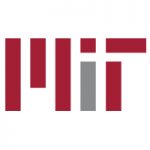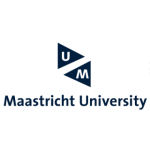项目介绍
The Doctoral Program in Social and Engineering Systems (SES) is a unique research program focused on addressing concrete and societally significant problems by combining the analytical tools and methods of statistics and information sciences with engineering and social science tools and methods.
SES students study problems that correspond to significant societal challenges, with an emphasis on areas such as social networks, autonomous systems, energy systems, financial networks, and urban systems. This includes analytical research that can be used to inform policy making. Graduates will go on to roles in academic departments in various fields (engineering, management, operations research, and others), serve in the public sector (from research labs to regulatory agencies), as well as pursue careers in the private sector (from industry to consulting).
Interested in applying? Speak to an SES grad student or IDSS postdoc as part of the SES Graduate Application Assistance Program (SES-GAAP). This is offered to students from historically underrepresented groups in higher education. Participation is voluntary. It will not be disclosed to the SES Admission Committee and therefore will not impact admissions decisions. Sign up for SES-GAAP now! Registration for SES-GAAP closes November 15.
Applications are due December 15. The application opens around September 15.
Program Overview
The first part of a student’s program consists of advanced, rigorous, and challenging classes (more details below).
However, classes are just the first part of the doctoral program. After passing both the written and oral portion of the qualifying exam, the balance of a student’s academic activity will shift from classes to research. This immersion in research is the centerpiece of the SES program.
To get a sense of the style and variety of research that is carried out within IDSS please visit the web pages that describe some of IDSS’s domains of expertise as well as the web pages of individual IDSS faculty, senior research staff members, and students.
The Character of the Program
- It is driven by problems of societal interest. The focus of the program is the study of problems that correspond to significant societal challenges, with emphasis on areas such as sociotechnical systems, autonomous systems, energy systems, finance, social networks, and urban systems. This includes analytical research that can be used to inform policy making. An example of work that falls under this program would be studying systemic risk in the banking system and its impact on the overall financial system. In contrast, profit-maximizing portfolio management does not.
- It involves quantitative methods. Societal problems or policy questions can be addressed from many different angles. However, this program focuses on problems that can be addressed through tools of computing and information sciences, including mathematical modeling and analysis, data science and statistics, and other quantitative methods.
- It relies on real-world data. Research is expected to analyze data from the application domain of interest, and thus training in statistics is part of the program.
- It engages societal aspects of the problem. The research is expected to examine the societal aspects of a problem (e.g., regulations, institutions, human behavior, or economic aspects), using theories and tools from the social sciences.
Classes
The class requirements for the doctoral program follow. In some cases classes will be selected from pre-approved class lists and in other cases classes will be subject to approval by the SES-GPC.
Core
Take 3 of the 4 following classes. With academic advisor approval, substitutions may be possible for 6.436.
- 6.436 Fundamentals of Probability
- 18.6501 Fundamentals of Statistics or
18.655 Mathematical Statistics or
IDS.160 Mathematical Statistics (for students with previous background in statistics) or
IDS.131 Statistics, Computation and Applications - 14.121 & 14.122 Microeconomic Theory I & II or
14.320 Applied Econometrics or
14.381 New Econometric Methods or
14.386 Inference on Causal and Structural Parameters Using ML or
17.802 Quantitative Research Methods II: Causal Inference - 21A.809 Designing Empirical Research in the Social Sciences or
21A.819 Ethnographic Research Methods or
17.850 Political Science Scope and Methods or
SOCIOL 2205 Sociological Research Design
Information, Systems, and Decision Science
5 classes. These will be rigorous classes in the areas of probabilistic modeling, statistics, optimization, and systems/control theory. Classes used to satisfy the core can be counted toward this requirement. However, the remaining classes should be at a more-advanced level. One subject must involve the statistical processing of data. One subject must have substantial mathematical content (as defined by the IDSS-GPC). Two classes must belong to a sequence that provides increasing depth on a particular topic.
Social Science
4 classes. A student proposes a coherent and rigorous program-of-study in the social sciences that provides the background necessary for the student’s research. Classes used to satisfy the core can be counted toward this requirement. However, the remaining courses should be at a more-advanced level. Three classes must form a coherent collection that builds depth in a particular social science focus area.
Problem Domain
2 classes. A student takes a total of two classes in the application domain of their research. One class may also be counted toward the social science requirement. Another class may be satisfied by an internship or independent study in which the student is graded on their performance of hands-on work in a particular domain.
Teaching
1 class. A student serves as a teaching assistant for one subject and receives credit for 12 units of IDS.960 Teaching in Data, Systems, and Society.
Qualifying Exam
Written Qualifying Exams
A student passes the written qualifying exams through strong performance in three core subjects from different areas. This is normally accomplished by the end of their third semester in the program.
Oral Qualifying Exam
Between the student’s fourth and sixth semester in the program, and after the student passes the written qualifying exams, they take the oral qualifying exam. The oral qualifying exam includes a research presentation by the student. To pass the oral qualifying exam a student must demonstrate the ability to undertake doctoral-level research and to handle questions about that research, including extensions to related problems.
联系方式
电话: 617-253-1000相关项目推荐
KD博士实时收录全球顶尖院校的博士项目,总有一个项目等着你!






